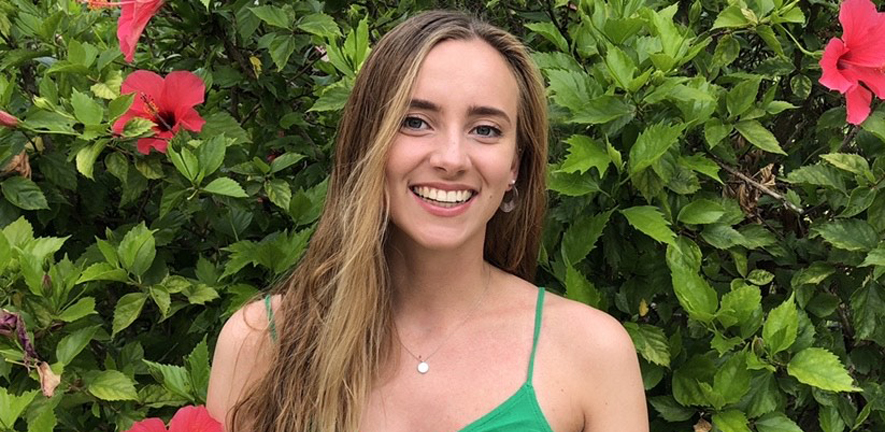
Izzy, second year, Natural Sciences, Murray Edwards College
During school I always struggled to pick which science was my favourite, so when I found out about the Natural Sciences Tripos (NatSci) course it was an easy choice due to the broad nature of subjects studied. In my first year, I was certain about studying maths (compulsory in the first year), physics and chemistry, but I was unsure what to choose as the final option – Materials Science or Earth Science. I chose to study Materials Science hoping it would incorporate the physics and chemistry I was already familiar with, along with new topics. Once I began studying the course, I quickly realised that taking Materials Science was a good choice for me – I enjoyed studying biomaterials, mechanical failure, and even liquid crystal displays. There was also some very useful overlap with my other options.
During the first year of NatSci, I attended 12 lectures per week in the mornings and 2 lab sessions per week, where the lecture content was put into practice. There were also 4 tutorials (known as supervisions) each week, one for each option, with a Fellow or PhD student from that subject option. Usually this was with one other student, so in a pair, with the tutor (known as a supervisor), we consolidated materials from the lectures by going over topics covered in a question sheet we completed before each supervision. This aspect of the teaching at Cambridge is very valuable as there is a large volume of teaching material received each week – you can gain a much better understanding of tricky topics via your supervisions. The high number of contact hours for NatSci also means that you need to be organised to make sure you can complete the independent work set, as well as attending lectures, your practical sessions and supervisions.
Living in the collegiate system also has many benefits. One of the main things I really appreciate is the large number of support systems in place to make sure that you are well looked after while living away from home. They make sure that you are coping well with the workload and managing to keep a healthy work/life balance; these include your Director of Studies, Personal Tutor, Supervisors, college family and of course friends! They all contributed to making settling into the Cambridge life much easier and smoother.
In my second year, I chose to carry on with Materials Science and Double Physics – we had to choose three this time. I chose these based on what I enjoyed most in first year, and the analytical side of physics alongside materials science really appealed to me. The workload is slightly lower in the second year - 9 lectures and 3 supervisions per week, which makes it easier to focus on the parts of the subject you enjoy, whilst looking into topics with more detail. This also frees up time for independent working. Dealing with the pressures of the workload is also much easier in the second year, as you know how you work best in the short 8-week terms. I currently plan to take my study of Materials Science into the third year, as I really enjoyed seeing the real life applications of the theoretical knowledge investigated, such as in MRI machines.
The Department of Materials Science has felt very welcoming all the way through my time so far – the supervisors are helpful and friendly, and the lab demonstrators have great patience! I hope that I may eventually continue into the fourth year integrated masters course - if all goes to plan!
(Course-specific information correct at time of publishing - April 2020.)
